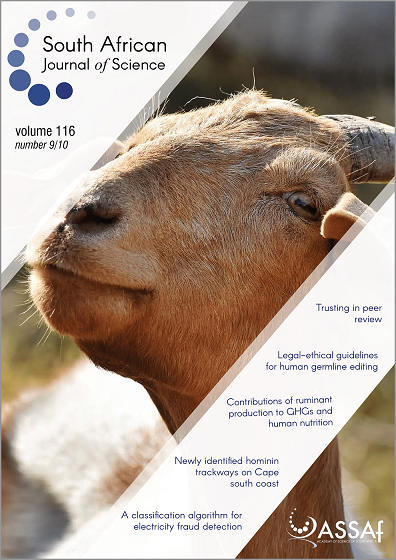'Pollute the bay and poison the people': A short history of the Green Point marine sewage outfall, 1882–1992
DOI:
https://doi.org/10.17159/sajs.2020/8173Keywords:
Cape Town, pollution, ocean, health, sewerageAbstract
The City of Cape Town in South Africa pumps 40 million litres of untreated sewage into the Atlantic Ocean from the Green Point outfall pipeline every day. This results in microbial and chemical pollution of the sea (including persistent organic pollutants), marine organisms and recreational beaches, breaching the City’s constitutional commitment to ‘prevent pollution and ecological degradation’ and, in doing so, it fails to uphold the constitutional right to an environment for citizens that is not harmful to ‘health or well-being’. This article explores how the decision to build this marine outfall was reached in 1895. It illustrates how narrow economic interests from the 1880s until today have driven the City’s commitment to the Green Point outfall despite a long history of opposition from citizens and scientists and repeated instances of pollution and ill-health. The findings reveal how, rather than being the cost-saving option that the City has always claimed it to be, its maintenance has cost enormous sums of money. The story of the Green Point outfall is one in which unimaginative, short-term monetary thinking has thwarted the search for an ecologically and hydrologically sustainable alternative means of sewage disposal – a legacy the City’s residents and the oceans that surround it live with today.
Significance:
- The findings show that the disposal of untreated sewage into the sea at Green Point has always been controversial (scientifically, politically and socially), and has resulted in episodes of illness among Cape Town citizens. It has never been the most economic option as repeatedly asserted by the City Council. The findings also illustrate that the City Council has consistently rejected ecologically and hydrologically sustainable alternative disposal options, and has denied problems associated with the outfall, despite overwhelming evidence to the contrary, a pattern which persists. These findings are important for civic governance, desalination, water quality, environmental humanities, health (human and marine), sanitation and urban planning.
Published
Issue
Section
License

All articles are published under a Creative Commons Attribution 4.0 International Licence
Copyright is retained by the authors. Readers are welcome to reproduce, share and adapt the content without permission provided the source is attributed.
Disclaimer: The publisher and editors accept no responsibility for statements made by the authors
How to Cite
- Abstract 1552
- PDF 1166
- EPUB 206
- XML 363
Metrics
Funding data
-
National Research Foundation
Grant numbers 118754












.png)